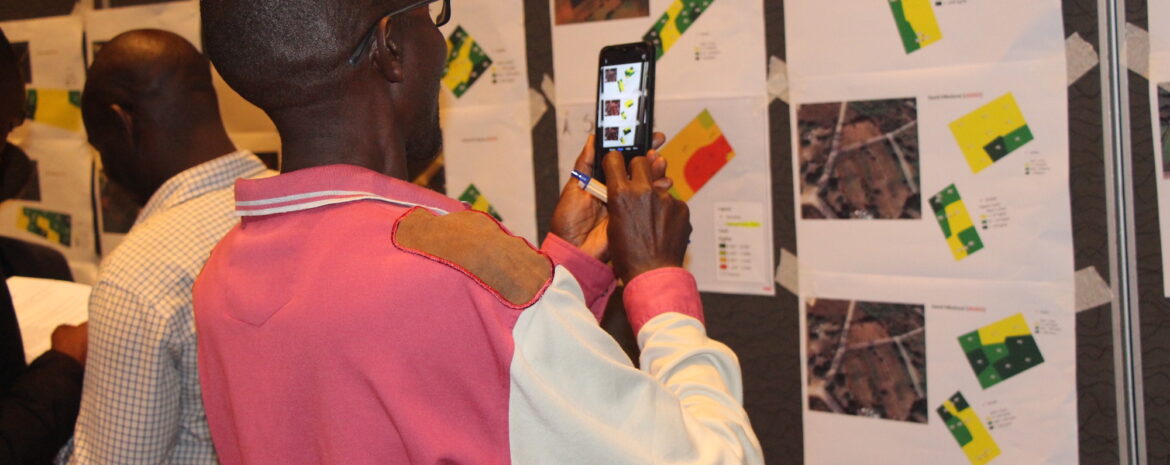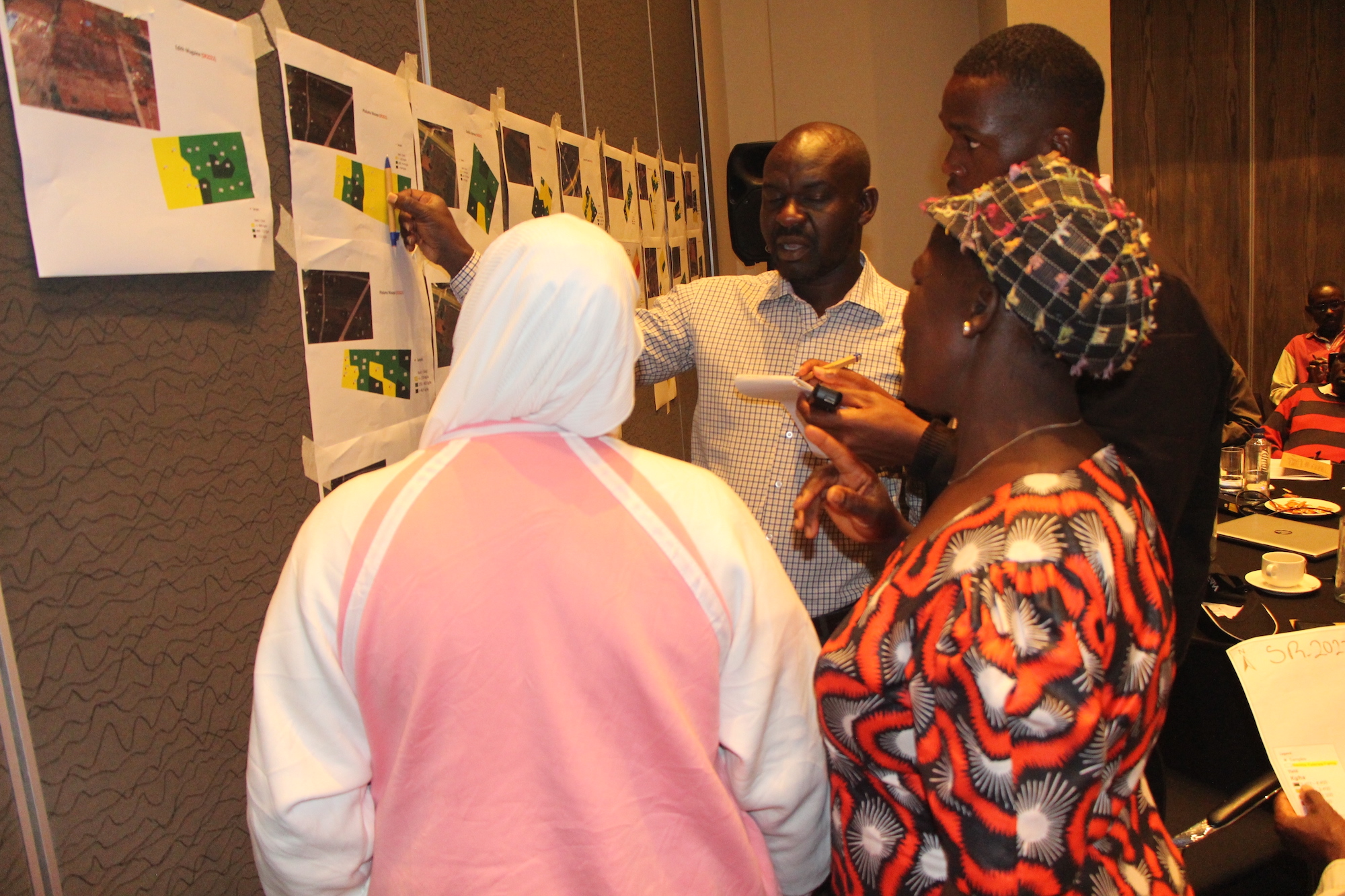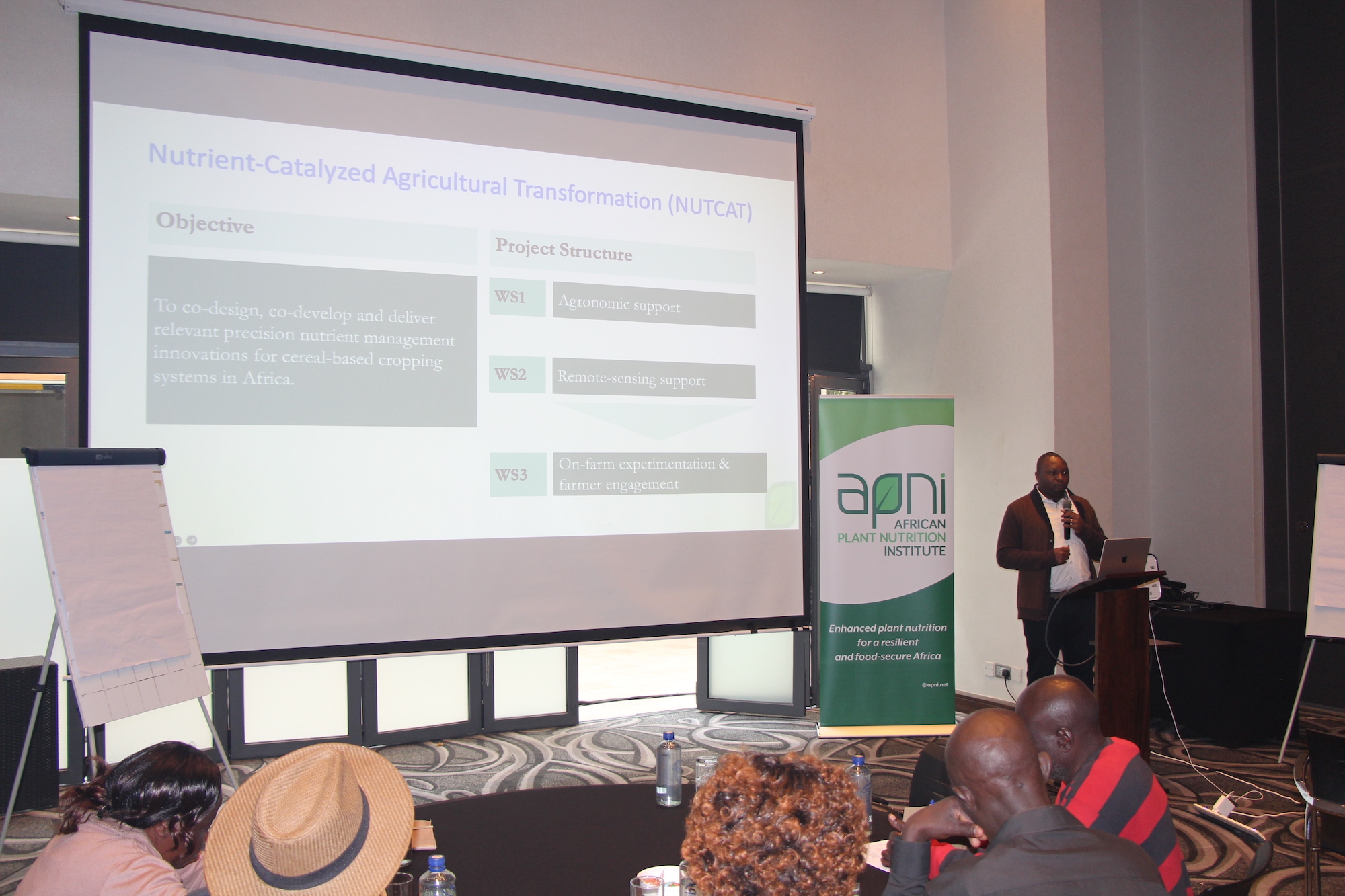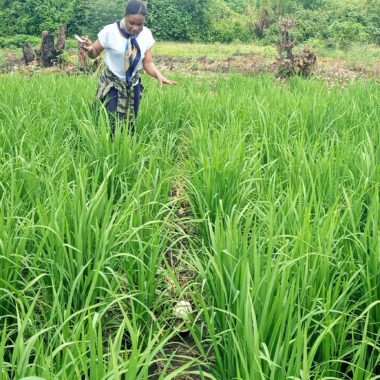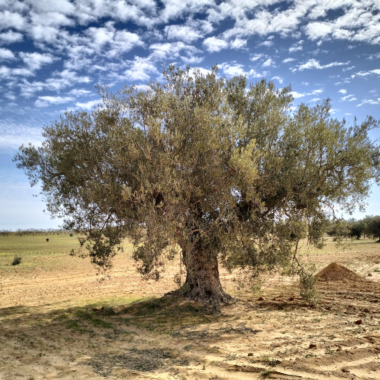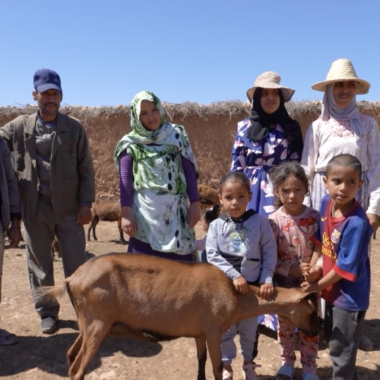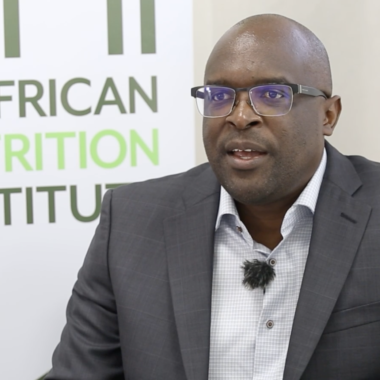NUTCAT Project Convenes Kenyan Farmers and Stakeholders to Assess Season’s Progress
Post-Harvest Dialogue Meeting Show Significant Progress Amongst Farmers
On the 12th of September, we held the second post-harvest dialogue (PHD) meeting for farmers and stakeholders involved in the Nutrient Catalyzed Agricultural Transformation (NUTCAT) project in Kenya. Yield and biomass results from NUTCAT trials of three consecutive seasons (short-rain 2021, long-rain 2022, and short-rain 2022) were deliberated upon with participants.
Although the scientist-led optimized treatment (OT) generally continues to out-perform the farmer practice (FP) , it is clear that farmers are improving season by season as they add to their learnings. Hence, we are optimistic of a substantial reduction in the yield gaps between OT and FP. It was exciting to observe the interest the yield map printouts generated among farmers. While taking a photo of a yield map of his field, one farmer indicated that he would use this digital tool to help him plan for the coming season (short-rain 2023).
The maize improvement team (MIT) also convened during the workshop with representatives from OCP-Africa, APNI, KALRO, Tupande by One Acre Fund, Cereal Growers Association (CGA), University of Nairobi, Pwani University, and County Government extension in attendance.
The OT package was revised to 150 kg N/ha, 50 kg P/ha, 30 kg K/ha, 15 kg S/ha, 0.5 kg Zn/ha plus a farmyard manure application of 5 t/ha. The yield target was also revised from 7.5 t/ha to 6 t/ha for Kakamega, Siaya, Embu and Meru Counties. The yield target for Machakos County, which is a low yield potential site, was further downgraded to 5 t/ha.
Before closing the workshop, we agreed with farmers the treatment options to be tested on trials that will be superimposed on the existing FPs. A PhD candidate will be working jointly with farmers in this next phase of OFE trials.
OFE Workshop Aid Understanding of its Value andStakeholder Roles
Following the PHD Dialogue, an On-Farm Experimentation (OFE) Workshop was held on the 13th of September in preparation for the upcoming Second International OFE Conference (#OFE2023) that is taking place in December. This workshop was attended by the Alliance of Bioversity and CIAT and IFDC in addition to the above-mentioned stakeholders.
The overall objective of this workshop was to aid stakeholders to understand the value of OFE. To achieve this objective, we used the Value Proposition tool, which consists of a customer profile, value map and a value proposition fit. We identified four customer segments: NUTCAT farmers, Non-NUTCAT farmers, service providers and scientists/academia. From the exercise, each group was able to identify jobs to be done, pains and gains in their line of work. Potential solutions for different constraints and opportunities for further improvement using the OFE process were identified. Although farmers face several constraints (e.g., inadequate financing, input supply chain bottlenecks, land access etc), they appreciate that the OFE process has eased some of these problems through trainings and demos on best management practices, bumper harvests, and the realization of more income. However, there are some issues that still need to be addressed such as record keeping, proper use of herbicides, and how to reach many more farmers beyond the pilot sites given the weak extension capacity.
APNI contributors: Dr. Ivan S. Adolwa, Scientist, Farming Systems

